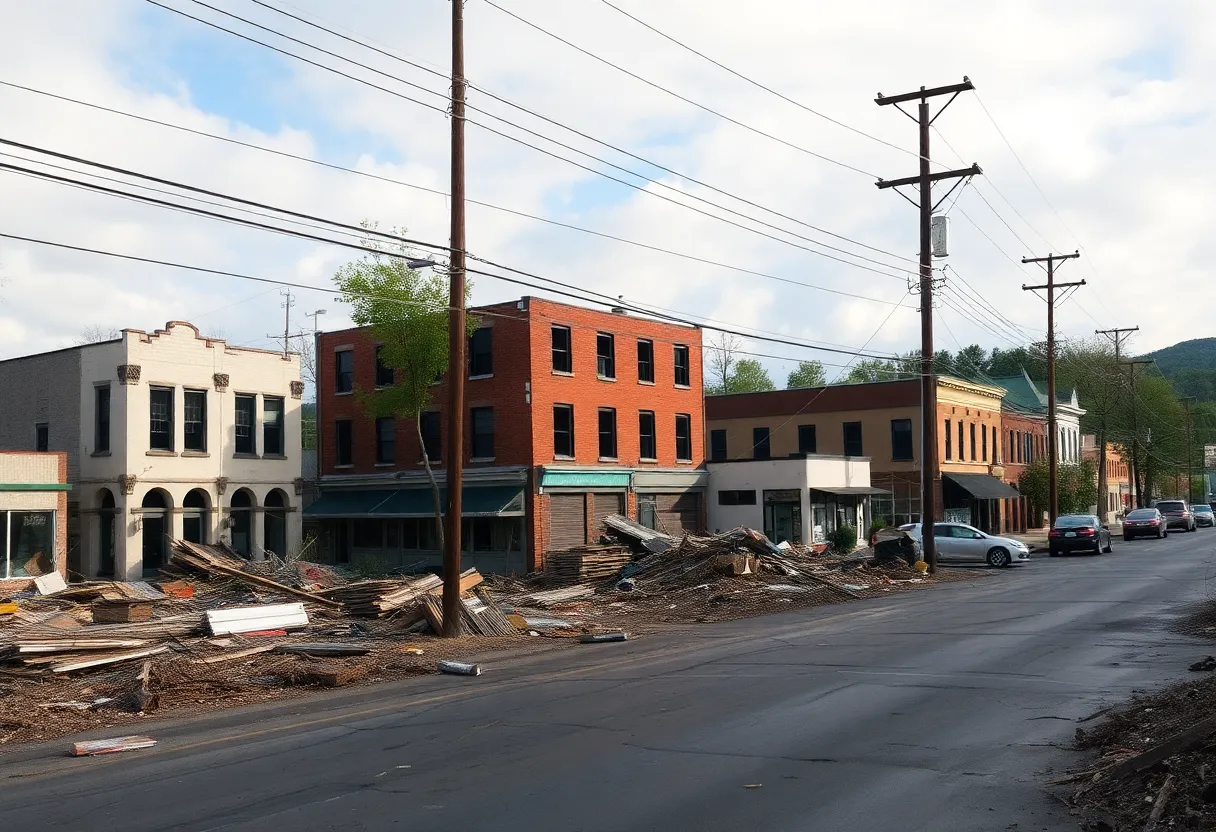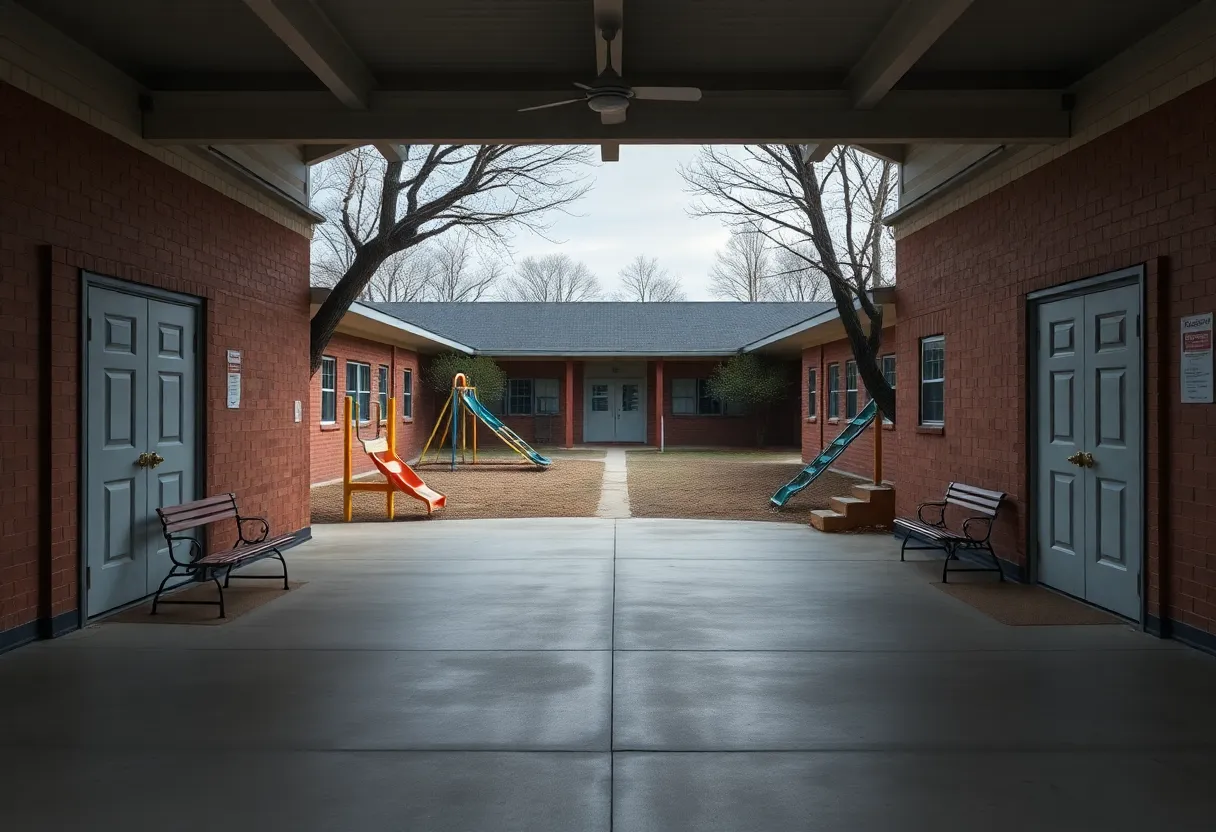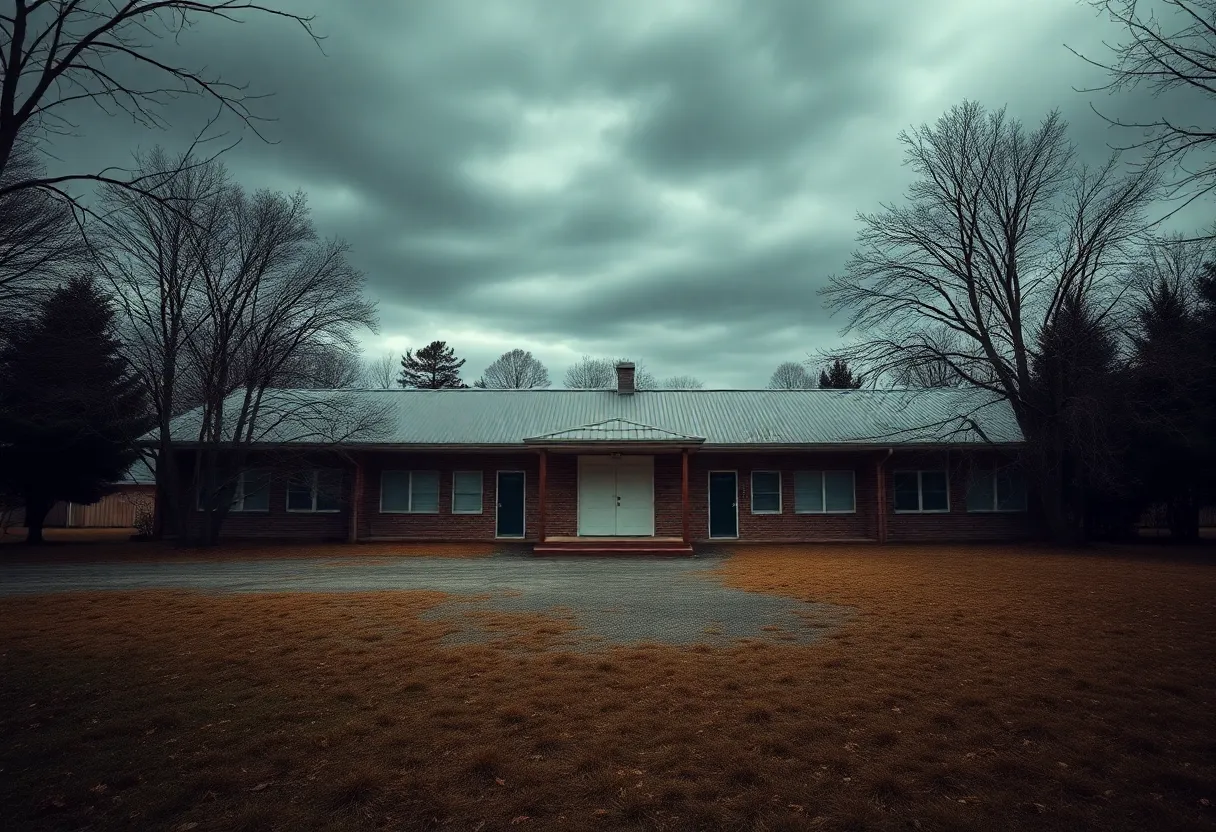News Summary
Asheville, North Carolina, grapples with the aftermath of Hurricane Helene, which has claimed over 160 lives across six states and left the city ravaged. With extensive damage to infrastructure and a significant death toll, local leaders face the challenge of recovery. Once perceived as insulated from disasters, experts now warn that Asheville, like many regions, is vulnerable to the increasing threats of climate change. Historical flooding concerns are escalating, prompting a crucial rethink in disaster preparedness. As recovery efforts begin, Asheville’s future remains uncertain yet hopeful amidst the devastation.
Asheville Reels from the Devastation of Hurricane Helene
Asheville, a charming city nestled in the mountains of North Carolina, is facing some truly heartbreaking challenges in the aftermath of Hurricane Helene. This powerful storm has left a *catastrophic mark*, with reports indicating that the death toll in Buncombe County alone has escalated by more than *30 lives*. Across the six affected states, over *160 individuals have tragically lost their lives* due to Helene’s ferocious winds and torrential rains.
A City Transformed
What once was a thriving community, home to about *95,000 residents*, Asheville now resembles a *war zone*. The extensive damage has left many buildings in ruins, and hard-hit areas are struggling without basic necessities such as food, water, and electricity. Roads and highways have been severely damaged, and power lines are down, making recovery efforts all the more complex. The Governor of North Carolina has described the destruction as *post-apocalyptic*, a significant shift from Asheville’s previous reputation as a *climate haven*, attracting individuals looking to escape extreme weather disasters.
Impacts of Climate Change
Interestingly, Asheville had previously been seen as somewhat insulated from disaster, with many climate migrants flocking to the area from places such as California and Arizona. But experts, including state climatologists, now note that *no region* is entirely safe from the forces of climate change. A recent study offered a striking insight that fossil fuel pollution has been responsible for over *50% more rainfall* across parts of the Carolinas and Georgia. Additionally, the mountainous terrain of Buncombe County makes it uniquely vulnerable to flash floods and landslides.
Historical Context of Flooding
This isn’t the first time Asheville has been challenged by severe flooding. The city has a history of flooding incidents that have resulted in loss of life and damage to property, with tragic floods dating back to 1916 when approximately *80 people were killed*. More recently, Tropical Storm Fred in 2021 caused significant destruction. However, the **scale of Helene’s impact** seems to have caught many residents and officials by surprise, as the threats posed by climate change have been rising at a rate faster than many have imagined.
Future Flood Risks
In fact, areas in North Carolina that had traditionally seen once-in-a-hundred-year floods now anticipate these events every *11 to 25 years*. The expectations around disaster preparedness need a serious rethink, especially as *weather patterns continue to shift*. The National Weather Service had anticipated historic flooding in Asheville as Hurricane Helene approached, and their predictions have unfortunately come to fruition.
Local Response and Recovery
Local leaders are initiating a recovery process to begin rebuilding, but uncertainty looms regarding how long it will take to restore Asheville to its former glory. With more than *half a million customers* losing power in North Carolina, particularly in the mountainous areas and the Charlotte region, the challenge is significant. Two lives lost in the state due to the storm—a heartbreaking *4-year-old in Catawba County* and another in Charlotte—only serve to highlight the severity of the situation.
The Road Ahead
Despite the overwhelming destruction, there is a belief that after events like hurricanes, developers may become interested in investing in affected properties due to their decreased value. It’s a complex situation, but one thing remains clear: the omnipresent risks related to climate change are real, and every region needs to brace for the potential impacts they might face in the future. As Asheville begins to heal and recover from Hurricane Helene, it stands as a reminder of the growing vulnerability every community faces in the wake of our changing climate.
Deeper Dive: News & Info About This Topic
HERE Resources
Asheville Small Businesses Bounce Back This Holiday Season
Henderson County Launches Tree Recycling Program
Asheville Hosts Bicycle Giveaway for Flood-Affected Families
Asheville Bridge Reopens After Hurricane Helene Damage
Asheville’s Post-Christmas Shopping Trends and Recovery Efforts
Asheville’s River Arts District Set for Recovery with New Grants
Santa Claus Spreads Cheer Amidst Hurricane Helene’s Aftermath
Buncombe County Welcomes FEMA Aid for Hurricane Helene Victims
Asheville’s Holiday Shopping Surges Despite Hurricane Impact
Asheville’s 11th Annual Winter Lights Delight
Additional Resources
- WBTV
- Wikipedia: Climate Change in the United States
- CNN
- Google Search: Hurricane Helene
- Fox Weather
- Encyclopedia Britannica: Hurricane Helene
- OKC Fox
- Google News: Asheville Flooding
- WFMY News 2
- NC Rabbit Hole






